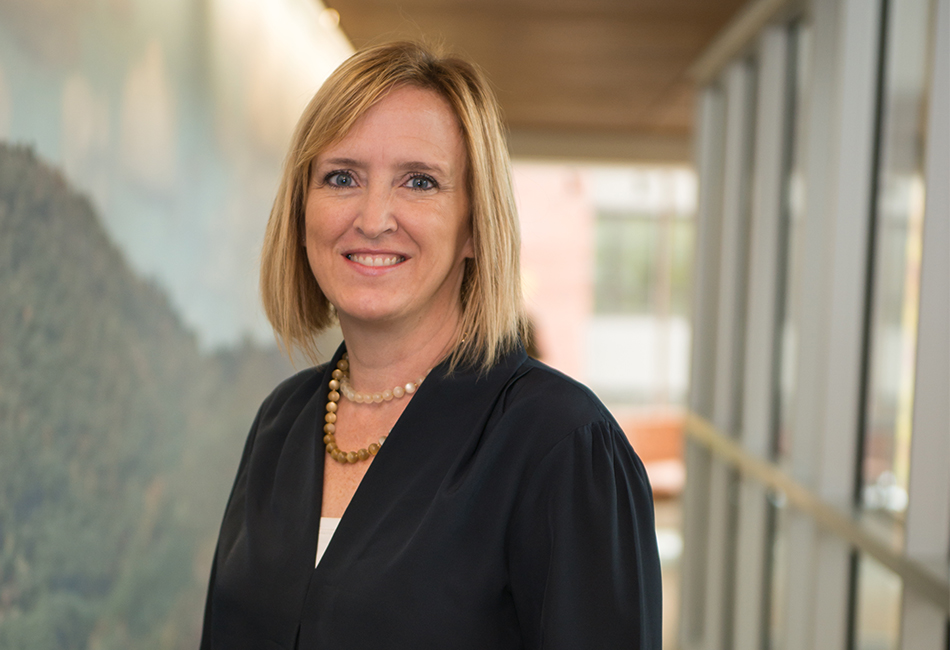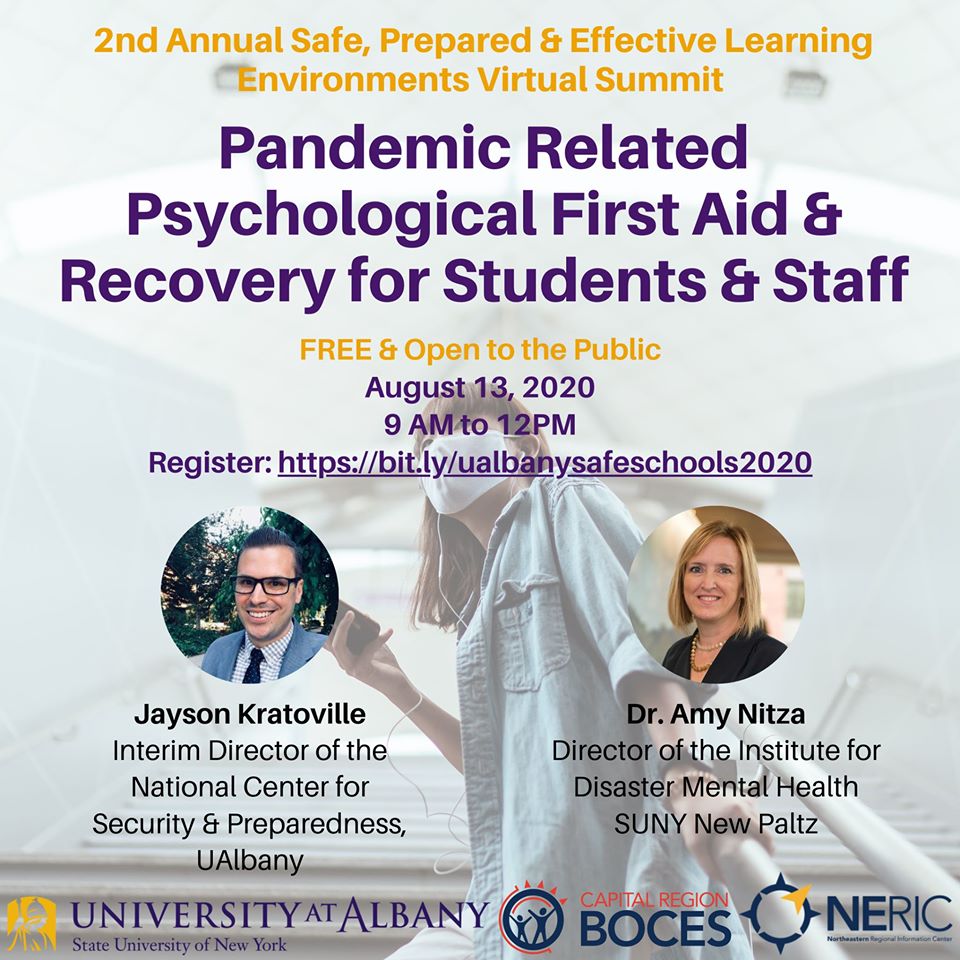The Institute for Disaster Mental Health lends expertise to “Safe, Prepared & Effective Learning Environments Virtual Summit”
Amy Nitza, director of the Institute for Disaster Mental Health (IDMH) at SUNY New Paltz, will be presenting “Pandemic Related Psychological First Aid and Recovery for Students and Staff” on Thursday, Aug. 13, as part of SUNY Albany’s three-part “Safe, Prepared, and Effective Learning Environments Virtual Summit.”
The virtual summit focuses on school preparedness and response to COVID-19. Previous sessions explored how to safely reopen school buildings, campuses and classrooms, and how to keep students safe in cyberspace.
Nitza’s session, moderated by Jayson Kratoville, interim director of the National Center for Security & Preparedness at SUNY Albany, will emphasize the importance of Psychological First Aid, a toolkit of strategies that anyone can use to care for themselves and others in anxious times.
Psychological First Aid is unique among other trauma response interventions in its accessibility and broad applicability, which makes it particularly useful in situations where large populations are responding to stressful circumstances.
“Psychological First Aid can be delivered by anyone, to anyone,” Nitza said. “It can include providing comfort, validating people’s thoughts and feelings, connecting them with support systems, providing timely and accurate information and reinforcing positive coping strategies.”
The virtual summit, offered at no cost to attendees, features SUNY experts, plus local primary and high school leaders and industry partners.
Community leaders, educators (teachers, faculty, staff and administrators), first responders (emergency managers, police, firefighters, EMTs), mental health professionals, parents/guardians and social workers are encouraged to attend.
The inaugural summit was launched last August at the Albany Capital Center in response to increases in violence at schools and on college campuses. It featured interactive workshops to help those with a vested interest in protecting children and young adults gain hands-on experience with emergency preparation, response and recovery.
Visit the Institute for Disaster Mental Health online for more information about their educational and trauma-response work, and stay up-to-date on the College’s response to COVID-19 at our Coronavirus Information Hub.


